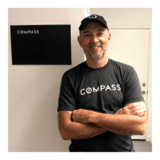Summary
Team happiness is an important and oft-mentioned DesignOps metric, but we need to reframe how we think about it. No human* can ""make"" their team happy, and it's folly to measure ourselves by that impossible standard. But what we _can_ do is create opportunities for our teams—opportunities to get weird, share freely, give feedback, encourage each other, and create their own team culture. And they get to choose whether and how they take advantage of those opportunities. *If you are a literal kitten, you may indeed be able to *make* people happy just by existing.
Key Insights
-
•
Team happiness is often confused with superficial displays like laughter or morale, but it involves deeper factors such as engagement and fulfillment.
-
•
Design ops and management professionals face immense pressure fueled by conflicting advice and sensationalized narratives about maintaining team happiness.
-
•
Cultural shifts mean people increasingly see work as a central part of their identity, intensifying pressure on workplaces to deliver happiness.
-
•
No one can guarantee happiness for others; leaders can only create conditions that support basic needs and opportunities.
-
•
Fundamental aspects like fair salary, benefits, and respect for work-life boundaries are more impactful on happiness than perks like ping pong tables.
-
•
Measurement frameworks that separate personal, team, and product contexts clarify what happiness or health means in each domain.
-
•
It’s essential to create opportunities for growth and joy, but participation depends on each individual’s choice and circumstances.
-
•
Design ops roles risk becoming caretakers catering to trivial demands, which can undermine their strategic contributions.
-
•
Acknowledging personal struggles with people-pleasing can help leaders release unrealistic expectations and reduce anxiety.
-
•
Supporting team happiness strategically involves focusing on basics, creating space for growth, and allowing team autonomy rather than trying to force happiness.
Notable Quotes
"You can’t make your team happy, no one can ever make anyone else happy ever, ever."
"If you don’t have the basics taken care of, infinite promotions and ping pong tables are just noise."
"There’s a lot of pressure on ops people and managers to make everything perfect all the time for staff."
"Our culture has diminished a lot of the other things in life that are supposed to give us meaning and put infinite pressure on work."
"Design ops folks meet the habit of catering so much to everybody’s increasingly trivial whims that it takes us away from the real meaty ops work."
"It’s the individuals who choose whether and how they take advantage of the opportunities you create."
"Having questions about team happiness broken into person, team and product helps clear up confusion in large organizations."
"We need to reject the notion that work is our only identity."
"Creating moments of joy in the day can encourage positive behaviors and brighten people’s days."
"Taking care of the basics and creating opportunities lets us get out of the way and let the team thrive however they see fit."
Or choose a question:
















More Videos

"Centralizing budget and tools for accessibility helps build maturity and consistency across large organizations."
Nicole Bergstrom Anna Cook Kate Kalcevich Saara Kamppari-MillerAccessibilityOps: Moving beyond “nice to have”
September 19, 2024

"Power users would right click and open listings in new tabs to keep their place in search results."
Erin WeigelReal-world lessons to improve your conversion rates
June 26, 2024

"AI has as much capacity to do as much harm as it does good."
Dr. Jamika D. Burge Nick Fine Alexandra Jayeun Lee Greg Nudelman Bo WangHow UX researchers can partner with (and not be replaced by) AI [Advancing Research Community Workshop Series]
August 31, 2023

"You have to keep the injection sites moving because of scar tissue, adding to the body hacking complexity."
Daniel J. RosenbergDigital Medicine Design
September 26, 2019

"Team members told me they felt really seen for the first time during these discussions."
Francesca Barrientos, PhDYou Need Your Own Definition of Design Maturity
June 8, 2022

"Teams testing components in real-world contexts early can catch issues before products are even built."
Gabriela BarnevaOperationalizing Inclusive Design in Design Ops
September 11, 2025

"Some of the most impactful insights come from data analytics and user research collaborating to find behaviors seen in real people and aggregate data."
Eduardo Ortiz Robin Beers Rachael Dietkus, LCSW Bruce Gillespie Jess Greco Marieke McCloskey Renee ReidDay 3 Theme Panel
March 13, 2025

"Avoid walls of text and create visual hierarchy to ensure scanability by using headers, sections, lists, and images."
Gabrielle VerderberDocumentation Your Team Will Actually Use
October 3, 2023

"The viruses don't discriminate based on race, but our healthcare system does."
Megan CamposWhat Did I Miss? The Hidden Costs of Deprioritizing Diversity in User Research
March 12, 2021
















